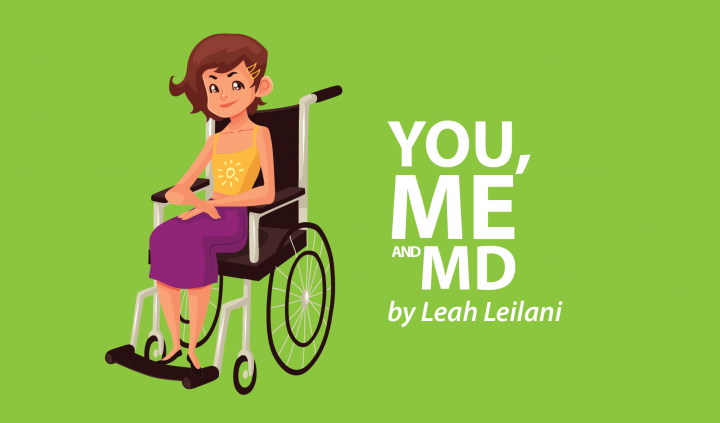Redefining Success While Living with a Chronic Illness
Written by |

I never have an answer to the questions, “Where do you see yourself in five to 10 years?” or “What are your future goals?”
Mitochondrial myopathy is a rare and little understood disease, meaning I don’t know what lies ahead with my health. This can make it nearly impossible to plan for the future and set big goals.
I tend to be a perfectionist. If I create or do something that’s not up to my standards, I feel like a failure, causing myself undue stress. The pressure to succeed is anxiety-inducing and can be detrimental to my health.
The word failure rang in my ears recently when I notified my chief editor that I needed to pare back on my column frequency due to increased duties as a Muscular Dystrophy News Forums moderator. Although I knew my boss would understand, I still beat myself up about it.
I am lucky to work for a company with many chronically ill employees and understanding and lenient bosses. But for many others with chronic illness, cultivating a life of success is just a dream. Doctors’ appointments and daily health struggles consume the time that otherwise would be spent at work or school.
Those with jobs are often forced to work themselves into a coma or prioritize their health over their work, education, and social life. Yet many fear being fired if they take too much time off work.
This mindset is detrimental, even to able-bodied people. No one should ever feel shame or reluctance to care for their health. So how do we change this perspective? By finding success in the small things we achieve.
I used to feel unsuccessful if I didn’t write three satisfactory columns per month. This made me less motivated to write. I was reminded of that saying often attributed to Winston Churchill: “Perfect is the enemy of progress.”
Eventually, I realized I was pressuring myself to complete unrealistic goals. The goals were inhibiting my success, not improving it. Instead of creating big goals I might not complete, I decided that making smaller, more achievable goals would be a healthier alternative. Now, I try to focus on writing at least one column per month that I’m proud of and congratulate myself when I complete this goal. Even on days when all I can do is rest and care for myself, there is still success to be found in accepting my health and listening to my body.
My chronic illness may prevent me from achieving and experiencing the standard ideals of success, but by prioritizing my health and by accomplishing small goals, I can create a successful life of my own.
***
Note: Muscular Dystrophy News is strictly a news and information website about the disease. It does not provide medical advice, diagnosis or treatment. This content is not intended to be a substitute for professional medical advice, diagnosis, or treatment. Always seek the advice of your physician or another qualified health provider with any questions you may have regarding a medical condition. Never disregard professional medical advice or delay in seeking it because of something you have read on this website. The opinions expressed in this column are not those of Muscular Dystrophy News or its parent company, Bionews Services, and are intended to spark discussion about issues pertaining to muscular dystrophy.






Hawken Miller
This is great Leah! I tend to beat myself up over doing less than someone without MD. It's good to know I'm not the only one. Thanks for sharing your experience!
Leah Leilani
Thanks Hawken for the awesome comment. I love reading your articles too. It’s nice to know I’m not alone either, lol.
Marcelle Siqueira Santos
I feel exactly the same as in this part: "is a rare and little understood disease, meaning I don’t know what lies ahead with my health. This can make it nearly impossible to plan for the future and set big goals". Even with this, I'm still trying to be successful in the career I want. You are such an amazing person.
Leah Leilani
Marcelle, thank you for your kind words. Keep pursuing your dreams but keep your health in mind. I know it can be hard to find a balance sometimes.
Colette
Leah, your article came at just the right time for me. I have FSHD. I’m retired now but I too am a bit of a perfectionist. If I didn’t do my home exercises or swim like I wanted to I would push myself to workout longer and end up over doing it. My body would take all the next day to recover. Often times I would not want to exercise again right away. This made me feel like a failure. I’ve been in a vicious circle. Your article has helped me break that vicious circle by making me think about planning shorter workouts spread out over more days in the week. My body has thanked me and I’m no longer beating myself up because I didn’t exercise enough that week. I now know what success looks like when my body tells me after exercise that you still have enough energy to do the things you love. Thank you for your article. Please keep writing! Colette
Leah Leilani
Colette, thank you so much for telling me your story and that I made a difference in your life. This is precisely why I write my article and it always brings me joy to know that I helped someone in some way, shape or form. Always keep in mind that your best is good enough ❤️
Larry
Thanks for this. I often feel the same way. More and more of my time has gone into my efforts to stay healthy as I can. I have a slow processing form of MD. At times I feel unproductive and stress out. I am starting to figure out that concentrating on my health is a job to be done well too